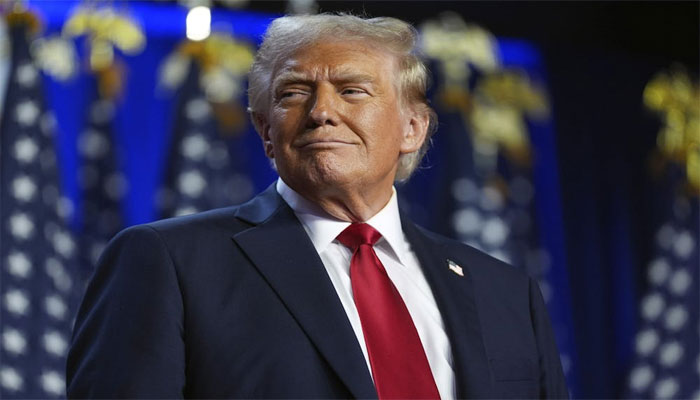WASHINGTON: U.S. President Donald Trump made a bold move on Wednesday by unveiling massive new tariffs on imports from several countries, a move that threatens to spark a global trade war. In a speech from the White House Rose Garden, Trump introduced what he called “Liberation Day” tariffs, targeting a range of global trade partners, including China, the European Union, and several other nations.
The tariffs, which include a variety of rates, are designed to protect American industry, but experts warn they could have dire consequences for both the U.S. and the global economy.
The most significant tariff announcements include a 34 percent levy on imports from China, which has long been a focal point of Trump’s trade agenda. The European Union, another major U.S. trade partner, faces a 20 percent tariff on its goods. Other countries are subject to a baseline tariff of 10 percent, though some will face much higher rates. These include Japan, which will be hit with a 24 percent tariff, and India, which faces a 26 percent levy. Pakistan, another country targeted in the announcement, will see a 29 percent reciprocal tariff imposed.
Other countries affected by the tariffs include Algeria (30%), Bahrain (10%), Mauritius (40%), and Fiji (32%), among many others. The tariffs are reciprocal, meaning they are imposed based on how the United States is treated by other countries. For example, Taiwan, Vietnam, South Korea, and Indonesia face tariffs ranging from 25% to 49%, with various countries in Africa, Europe, and Latin America also facing significant tariff hikes.
Trump’s remarks were delivered against the backdrop of U.S. flags as he framed the tariffs as a necessary response to what he described as the "looting, pillaging, raping, and plundering" of the United States by both friends and foes alike. "This is Liberation Day," he declared, suggesting that the tariffs would mark the beginning of a new era in U.S. industry. The audience, including cabinet members and workers from steel, oil, and gas industries, cheered as Trump promised that the new tariffs would make America wealthy again.
The announcement of these sweeping tariffs follows Trump’s previous move last week, when he imposed a 25 percent tariff on automobiles. While Trump has long advocated for tariffs as a way to address trade imbalances and boost U.S. manufacturing, critics warn that the consequences could be dire. By raising the cost of imports, the tariffs risk triggering a recession at home as the increased costs are passed on to U.S. consumers. Furthermore, the tariffs threaten to provoke retaliatory actions from the affected countries, potentially escalating into a full-scale trade war.
Markets reacted strongly to the announcement. The pan-European STOXX 600 index fell 1.5%, marking its biggest daily decline in nearly three weeks. Investors fled risky assets, sending the volatility index in Europe to a near three-week high. Major stock exchanges saw declines of more than 1%, as investors sought the safety of assets like gold and the Japanese yen.
The European Union has already vowed to respond to Trump’s tariffs. French government spokespeople indicated that the EU would take countermeasures on U.S. actions regarding steel and aluminum, followed by targeted actions across specific sectors. British Prime Minister Keir Starmer also weighed in, emphasizing that a trade war would not benefit anyone. The EU has warned it will respond to Trump’s tariffs "before the end of April."
Despite warnings from economists that these tariffs could stoke a global recession, Trump has remained steadfast in his belief that they are necessary for protecting U.S. jobs and industry. He believes that the tariffs will lead to the revival of American manufacturing, providing more jobs and boosting economic growth. However, economists like Mark Zandi, chief economist of Moody’s Analytics, argue that the trade war could push the U.S. into a recession by Labor Day (September 1) due to the increased costs of imports.
In addition to the potential for economic harm, there are geopolitical implications. The tariffs could further isolate the U.S. from its allies and strengthen its adversaries. For instance, Germany has warned that trade wars harm both sides, while European Central Bank President Christine Lagarde cautioned that whatever steps other countries take, it will have a negative impact globally. Meanwhile, Trump’s push for tariffs has alienated some of his closest allies, including Canada and Mexico, although both countries had earlier been excluded from the tariff actions during ongoing trade talks.
As countries brace for the fallout from Trump's new tariffs, it is clear that the global economy could face significant uncertainty in the coming months. The long-term impact of these sweeping tariffs remains to be seen, but with markets already reacting negatively and international counterparts preparing to respond, the world faces a potentially volatile future.








